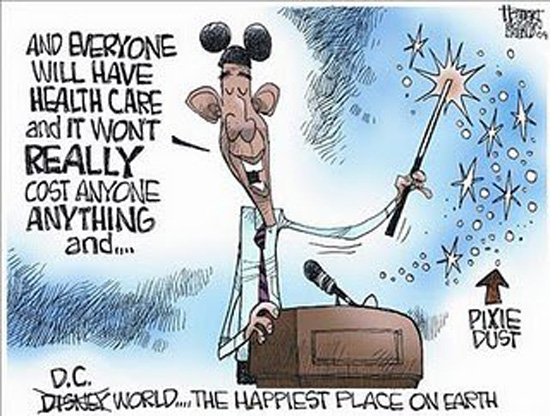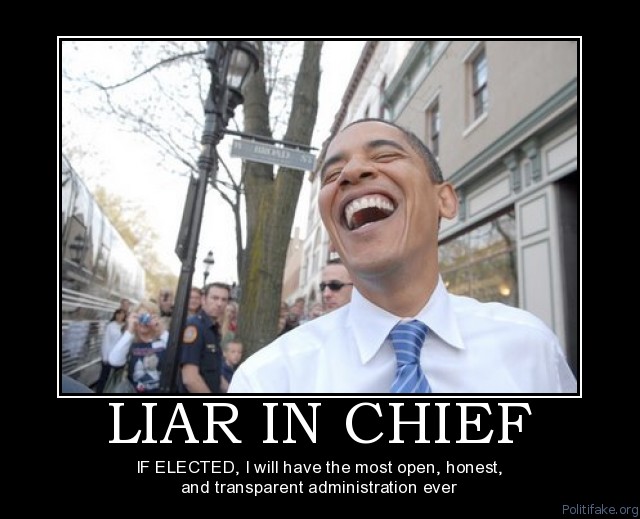It looks like you're using an Ad Blocker.
Please white-list or disable AboveTopSecret.com in your ad-blocking tool.
Thank you.
Some features of ATS will be disabled while you continue to use an ad-blocker.
share:
originally posted by: buster2010
The insurance companies were already doing that before the ACA. So blaming it for something that was already happening makes no sense.
My grandmother had a triple bypass and a couple stents put in several years ago when she was 91 years old. My grandfather had his prostrate removed due to cancer and oodles of medication around the same timeframe when he was 92. Both were covered by my grandmothers insurance that she was allowed to continue to carry when she retired from a paper plant over 40 years ago (a topic for another thread altogether).
Both medical conditions would of killed them rather quickly had they not been treated. As it is now both are still alive and are 97 and 98 respectively.
So please tell me more about how insurance companies were refusing lifesaving surgeries for the elderly. Of course there was rationing of care to a degree in the past, but in no way to the degree it is now.
Medical care in the US is lousy. I pay 3 times more than i did 6 years ago for my insurance. Even with that, it was still cheaper to go to Mexico
for surgical procedures recently undertaken in my family. I didn't have to file any claims, just paid straight out of pocket. And my out of pocket
was still $1000 less than it would have been through my insurance in the States.
Let that sink in for a minute: people are opting for Mexico for medical care as it is more affordable and no less safe or effective.
Let that sink in for a minute: people are opting for Mexico for medical care as it is more affordable and no less safe or effective.
a reply to: bigfatfurrytexan
I had a client who went to Costa Rica for a heart procedure......even with the travel and staying there for rehab, it was still thousands of dollars less expensive than similar care in the States.
The ACA hasn't addressed the core of the problem......overall our cost of care/insurance is just Insanely high compared to the rest of the world.
I had a client who went to Costa Rica for a heart procedure......even with the travel and staying there for rehab, it was still thousands of dollars less expensive than similar care in the States.
The ACA hasn't addressed the core of the problem......overall our cost of care/insurance is just Insanely high compared to the rest of the world.
originally posted by: pavil
a reply to: bigfatfurrytexan
I had a client who went to Costa Rica for a heart procedure......even with the travel and staying there for rehab, it was still thousands of dollars less expensive than similar care in the States.
The ACA hasn't addressed the core of the problem......overall our cost of care/insurance is just Insanely high compared to the rest of the world.
I would agree with this - the cost for care is currently still as astronomical as ever - the ACA was designed to do one thing, really, and that was to subsidize insurance for a potentially huge number of uninsured people - it can reduce costs over time in some areas, but really, its just a very complicated way for people to become part of the paid insurance consumer group, or part of the Medicaid group. I really wish it was more than that, but there you have it!
peace,
AB
originally posted by: neo96
Why it is still even around if beyond ridiculous.
It's still around because there isn't anyone who matters who really wants it gone (or ever did). You only have to look at the actual birthplace of the individual mandate and how it passed the essential SCOTUS challenge to see that this was something that was going to happen whether America liked it or not. It was apparently deemed to be expedient to pass it off as a Democratic law/bill/thing but every one of these SOBs were neck deep in it. I'm convinced of that.
a reply to: bigfatfurrytexan
I think the only real "health Insurance" is to have all of your Children go into the medical field..........
I think the only real "health Insurance" is to have all of your Children go into the medical field..........
Hmm.. Well, it seems my earlier thought that the "carrot and stick" had been employed in order to encourage States to make exchanges may not have
been accurate. Here is an article on the upcoming Court ruling...
CBS News - Source
[A] three-judge panel from the D.C. Circuit Court of Appeals is expected to hand down a ruling on whether the federal government can give subsidies to Obamacare recipients in states with federally-run health care exchanges. If the appeals court rules in favor of the law's opponents, it could cripple the law. More than half of the states rely on federally-run marketplaces, and were subsidies not available in those states, Obamacare could be too costly for many customers.
The case, Halbig v. Burwell, rests on how the court system interprets a poorly-worded sentence in the Affordable Care Act.
Section 1311 of the law says the federal government will give subsidies to eligible consumers who buy insurance from an exchange "established by the State." The Halbig suit -- and three other similar cases -- argue that, consequently, subsidies aren't available to customers in the 34 Obamacare exchanges that were established by the federal government.
Michael Cannon of the Cato Institute, a libertarian think tank, and Jonathan Adler of Case Western Reserve University School of Law first made the case against the subsidies, arguing that Congress wanted the subsidies to serve as a reward for states that established their own exchanges. Obamacare's "congressional sponsors created incentives for states to implement much of the law and reasonably expected that states would do so," they wrote.
However, there's no need to guess congressional intent given the law was passed by Congress four years ago. In fact, seven high-ranking Democrats who helped craft Obamacare, as well as dozens of state lawmakers, filed a brief in the case to explain the true intent of the law.
"The purpose of the tax credit provision was to facilitate access to affordable insurance through the Exchanges -- not, as Appellants would have it, to incentivize the establishment of state Exchanges above all else, and certainly not to thwart Congress's fundamental purpose of making insurance affordable for all Americans," they wrote. [CBSNews.com, 7/8/14]
CBS News - Source
Turns out the guy was right !!
In a potentially crippling blow to Obamacare, a federal appeals court panel declared Tuesday that government subsidies worth billions of dollars that helped 4.7 million people buy insurance on HealthCare.gov are illegal.
The 2-1 ruling said such subsidies can be granted only to people who bought insurance in an Obamacare exchange run by an individual state or the District of Columbia—not on the federally run exchange HealthCare.gov.
"Section 36B plainly makes subsidies available in the Exchanges established by states," wrote Senior Circuit Judge Raymond Randolph in his majority opinion, where he was joined by Judge Thomas Griffith.
Fed appeals court panel says most Obamacare subsidies illegal
a reply to: xuenchen
YUP!
This will effect Millions of people, Their thinking, that there will be a Major Monthly Premium Increase Spike!!!
LINK
Yes, and What State Were Are Those Again,,,,,,,,,,,
I Truly Feel Sorry For You People, I Do.


YUP!
This will effect Millions of people, Their thinking, that there will be a Major Monthly Premium Increase Spike!!!
A divided court panel in Washington called into question the subsidies that help millions of low- and middle-income people pay their premiums, saying financial aid can be paid only in states that have set up their own insurance markets, or exchanges.
LINK
Yes, and What State Were Are Those Again,,,,,,,,,,,
I Truly Feel Sorry For You People, I Do.


edit on 22-7-2014 by guohua because: (no reason given)
But wait now !!!
A different court says the subsidies are OK !!!
Such confusion
Separate US appeals court upholds Obamacare subsidies
A different court says the subsidies are OK !!!
Such confusion
Separate US appeals court upholds Obamacare subsidies
new topics
-
Bobiverse
Fantasy & Science Fiction: 16 minutes ago -
Florida man's trip overseas ends in shock over $143,000 T-Mobile phone bill
Social Issues and Civil Unrest: 21 minutes ago -
Former Labour minister Frank Field dies aged 81
People: 2 hours ago -
SETI chief says US has no evidence for alien technology. 'And we never have'
Aliens and UFOs: 4 hours ago -
This is our Story
General Entertainment: 6 hours ago -
President BIDEN Vows to Make Americans Pay More Federal Taxes in 2025 - Political Suicide.
2024 Elections: 9 hours ago -
Ode to Artemis
General Chit Chat: 10 hours ago
top topics
-
University student disciplined after saying veganism is wrong and gender fluidity is stupid
Education and Media: 17 hours ago, 14 flags -
President BIDEN Vows to Make Americans Pay More Federal Taxes in 2025 - Political Suicide.
2024 Elections: 9 hours ago, 12 flags -
Should Biden Replace Harris With AOC On the 2024 Democrat Ticket?
2024 Elections: 15 hours ago, 6 flags -
One Flame Throwing Robot Dog for Christmas Please!
Weaponry: 13 hours ago, 6 flags -
Don't take advantage of people just because it seems easy it will backfire
Rant: 13 hours ago, 4 flags -
Ditching physical money
History: 13 hours ago, 4 flags -
SETI chief says US has no evidence for alien technology. 'And we never have'
Aliens and UFOs: 4 hours ago, 4 flags -
Former Labour minister Frank Field dies aged 81
People: 2 hours ago, 3 flags -
Ode to Artemis
General Chit Chat: 10 hours ago, 3 flags -
This is our Story
General Entertainment: 6 hours ago, 2 flags
active topics
-
So this is what Hamas considers 'freedom fighting' ...
War On Terrorism • 249 • : Vermilion -
Russia Ukraine Update Thread - part 3
World War Three • 5725 • : BernnieJGato -
NASA Researchers Discover a Parallel Universe That Runs Backwards through Time - Alongside Us
Space Exploration • 70 • : seekshelter -
SETI chief says US has no evidence for alien technology. 'And we never have'
Aliens and UFOs • 21 • : network dude -
IDF Intel Chief Resigns Over Hamas attack
Middle East Issues • 43 • : TheWoker -
President BIDEN Vows to Make Americans Pay More Federal Taxes in 2025 - Political Suicide.
2024 Elections • 25 • : CriticalStinker -
University student disciplined after saying veganism is wrong and gender fluidity is stupid
Education and Media • 44 • : confuzedcitizen -
Who guards the guards
US Political Madness • 6 • : covent -
Remember These Attacks When President Trump 2.0 Retribution-Justice Commences.
2024 Elections • 53 • : Justoneman -
Bobiverse
Fantasy & Science Fiction • 0 • : DAVID64

